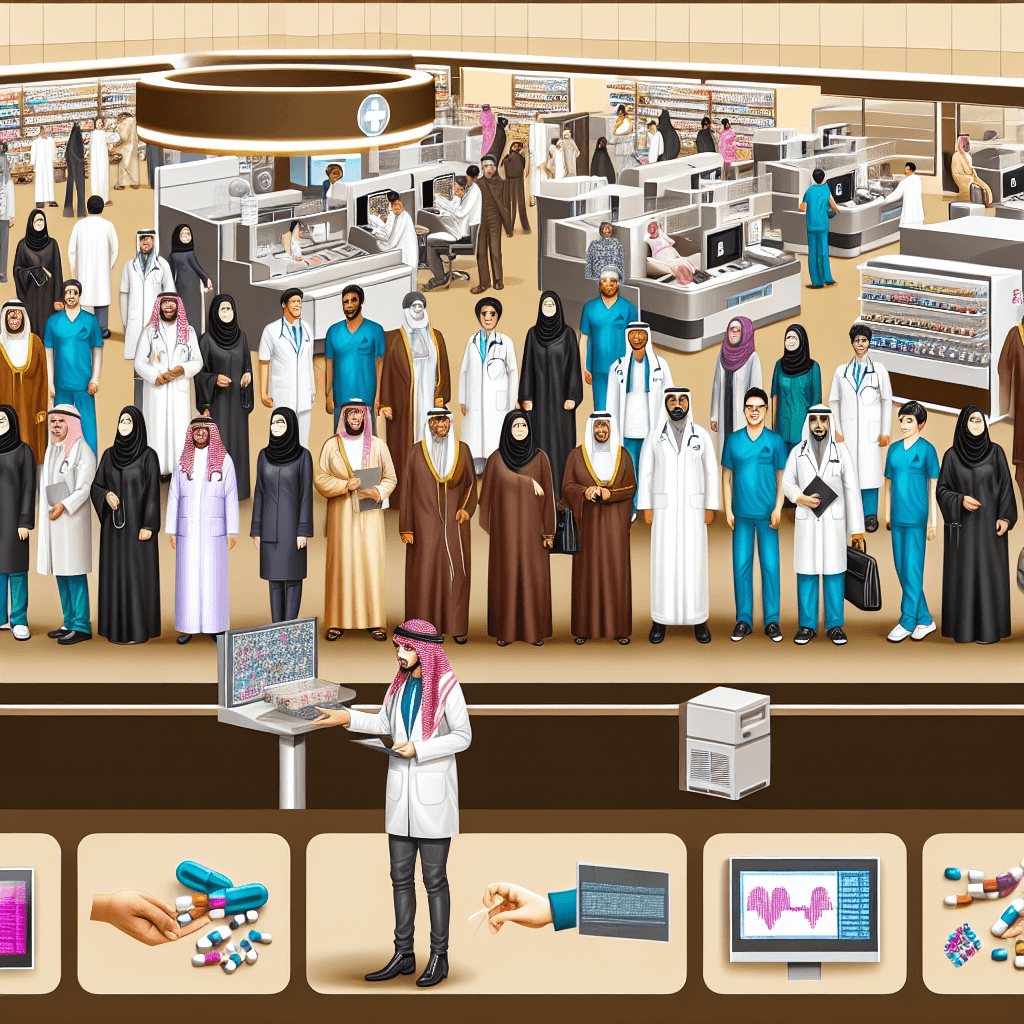Explore the dynamic KSA healthcare services market, highlighting growth, trends, and investment opportunities in Saudi Arabia’s expanding sector.
KSA Healthcare Services Market

Table of Contents
- KSA Healthcare Services Market
- Overview of the KSA Healthcare Market
- Current Landscape
- Government Initiatives and Vision 2030
- Role of Digital Health
- Private Sector Growth and Opportunities
- Challenges and Considerations
- Case Study: King Faisal Specialist Hospital and Research Centre (KFSH&RC)
- Future Trends
- Conclusion
KSA Healthcare Services Market

The Kingdom of Saudi Arabia (KSA) has been undergoing significant transformations in its healthcare sector, driven by governmental efforts to improve health services as part of the Vision 2030 reform plan. This article explores the current landscape, recent developments, and future trends in the KSA healthcare services market, providing a comprehensive overview for stakeholders and investors interested in this vital sector.
Overview of the KSA Healthcare Market
The Saudi healthcare system is characterized by its dual structure, including both a public and a private sector. The government is the primary provider of healthcare services, with the Ministry of Health (MoH) playing a significant role. However, there is a growing presence and influence of private sector providers, driven by public-private partnerships (PPPs) and government incentives.
Current Landscape
The healthcare infrastructure in Saudi Arabia includes a wide network of hospitals, clinics, and specialized care centers. According to recent statistics:
- The Kingdom hosts over 400 hospitals, with the MoH operating the majority.
- There are more than 2,000 healthcare centers across various regions.
This extensive network is supported by a robust healthcare workforce consisting of local and expatriate professionals. However, the sector faces challenges such as uneven quality of services, regional disparities in access to care, and a rising burden of non-communicable diseases.
Government Initiatives and Vision 2030
Under Vision 2030, Saudi Arabia aims to reform its healthcare system to enhance service quality, efficiency, and accessibility. Key initiatives include:
- Increasing the capacity and capabilities of health services.
- Promoting preventive care and public health.
- Encouraging private sector participation through PPPs.
One notable project is the National Transformation Program (NTP), which focuses on healthcare among other sectors. The NTP aims to increase the number of qualified healthcare professionals and implement advanced health technologies.
Role of Digital Health
Technological advancements are playing a crucial role in transforming the KSA healthcare market. Digital health initiatives include:
- Telemedicine services to extend reach in remote areas.
- Electronic Health Records (EHRs) for better data management and patient care.
- AI and machine learning applications in diagnostic processes.
The Saudi government has also launched the “Seha” virtual hospital, the largest of its kind in the region, which provides remote consultations and specialized medical services across the Kingdom.
Private Sector Growth and Opportunities
The private sector in Saudi Arabia’s healthcare market is poised for significant growth, driven by government support and increasing demand for high-quality medical services. Opportunities for private investors and healthcare companies include:
- Development of specialized medical facilities.
- Partnerships in hospital management and operations.
- Investments in pharmaceutical manufacturing and distribution.
Moreover, the government’s encouragement of health insurance has led to a burgeoning insurance market, further boosting private healthcare growth.
Challenges and Considerations
Despite the positive outlook, there are several challenges facing the KSA healthcare market:
- Regulatory complexities and changing policies.
- Human resource shortages, particularly in specialized medical fields.
- High dependence on foreign medical professionals.
Addressing these challenges requires coordinated efforts between the government, private sector, and educational institutions to ensure sustainable growth and development in the healthcare sector.
Case Study: King Faisal Specialist Hospital and Research Centre (KFSH&RC)
KFSH&RC in Riyadh is a prime example of excellence in the Saudi healthcare sector. It is renowned for its advanced medical practices and research capabilities. The hospital has been at the forefront of medical innovation in the region, including the successful separation of conjoined twins and advancements in genetic research.
This case study highlights the potential for medical excellence and innovation within the Kingdom, provided there is sufficient investment and support for healthcare institutions.
Future Trends
Looking ahead, several trends are likely to shape the future of the KSA healthcare market:
- Increased focus on healthcare quality and patient safety.
- Expansion of medical tourism, supported by world-class healthcare facilities.
- Greater emphasis on local manufacturing of pharmaceuticals and medical devices.
These trends indicate a shift towards a more diversified and sustainable healthcare system in Saudi Arabia.
Conclusion
The KSA healthcare services market is undergoing a transformative phase, marked by significant government investment, technological advancements, and increasing private sector involvement. While challenges remain, the strategic initiatives under Vision 2030 are poised to enhance the overall quality, efficiency, and accessibility of healthcare services. For stakeholders and investors, the Saudi healthcare sector represents a landscape filled with opportunities for growth and innovation.
In conclusion, as Saudi Arabia continues to invest in its healthcare infrastructure and reforms, the sector is expected to offer promising prospects for development and become a model for other nations in the region.








